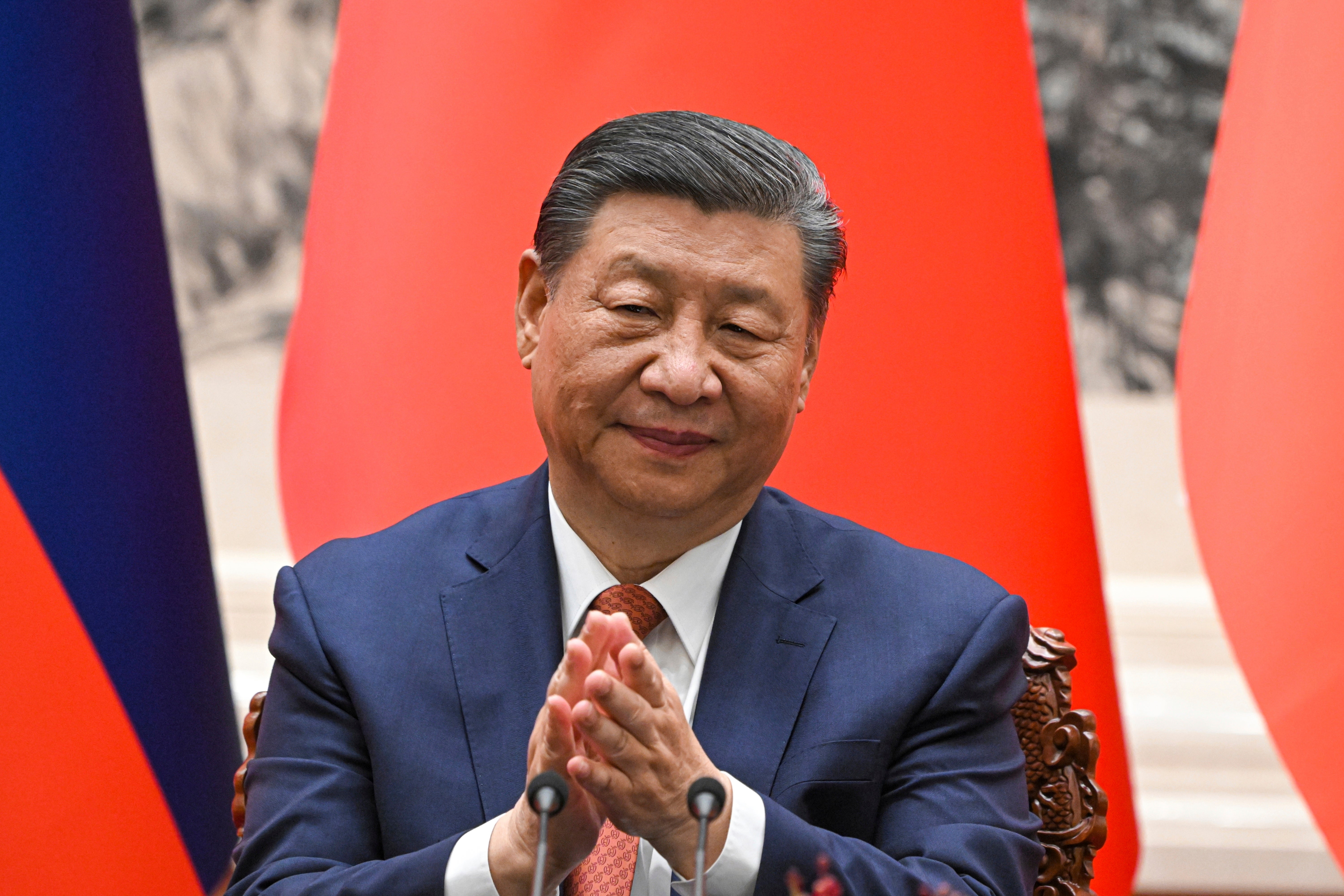China's latest AI chatbot is trained on President Xi Jinping's political ideology
China’s latest artificial intelligence chatbot is trained on President Xi Jinping’s doctrine in a stark reminder of the ideological parameters that Chinese AI models should abide by

China’s latest artificial intelligence chatbot is trained on President Xi Jinping’s doctrine, in a stark reminder of the ideological parameters that Chinese AI models should abide by.
China’s cyberspace academy earlier this week announced the chatbot trained on Xi Jinping Thought, a doctrine which promotes “socialism with Chinese characteristics."
The chatbot was trained on seven databases, six of which were mostly related to information technologies provided by China’s internet watchdog, the Cyberspace Administration of China, or CAC.
Xi Jinping Thought was the seventh database that the chatbot was trained on, according to a WeChat messaging service post by CAC’s magazine about the AI model.
The Xi-trained large language model is the latest effort by authorities to spread the Chinese leader's ideology and ideas. Students have had to take classes on Xi Jinping Thought in schools, and an app called Study Xi Strong Nation was also rolled out in 2019 to allow users to learn and take quizzes about his ideologies.
Xi Jinping Thought — also known as “Xi Jinping Thought on Socialism with Chinese Characteristics for a New Era” — is made up of 14 principles, including ensuring the absolute power of the Chinese Communist Party, strengthening national security and socialist values, as well as improving people’s livelihoods and well-being.
The chatbot was created primarily to demonstrate the development and practical applications in cybersecurity and IT research, according to the China Institute of Cybersecurity Affairs, which had launched the AI model for internal use.
The AI model would be able to generate report outlines on topics like AI development and productivity, according to the CAC magazine’s WeChat post.
“Users can choose different categories of knowledge bases for intelligent question and answer. The professionalism and authority of the corpus ensure the professionalism of the generated content,” the post said.
The AI model will also be able to create reports, summarize information and provide translations in Chinese or English for users who have access to it.
However, it's not clear if the Xi-trained chatbot will be meant for public use.
The unveiling of the chatbot comes as the U.S. and China are locked in a race for AI supremacy.
Though San Francisco-based OpenAI’s generative AI model ChatGPT has been widely credited as one of the most important developments in the field, China too has ambitions to become the global leader in AI by 2030.
China’s access to a population of 1.4 billion also allows the country to amass troves of data to train systems for facial recognition and autonomous driving.
Technology firms such as Alibaba and Baidu have already rolled out primarily Chinese-language AI models similar to ChatGPT for public and commercial use.
However, these AI models tend to be more restricted as they have to abide by China’s strict censorship rules. This means that Chinese AI models will often not answer any politically sensitive questions posed to them.